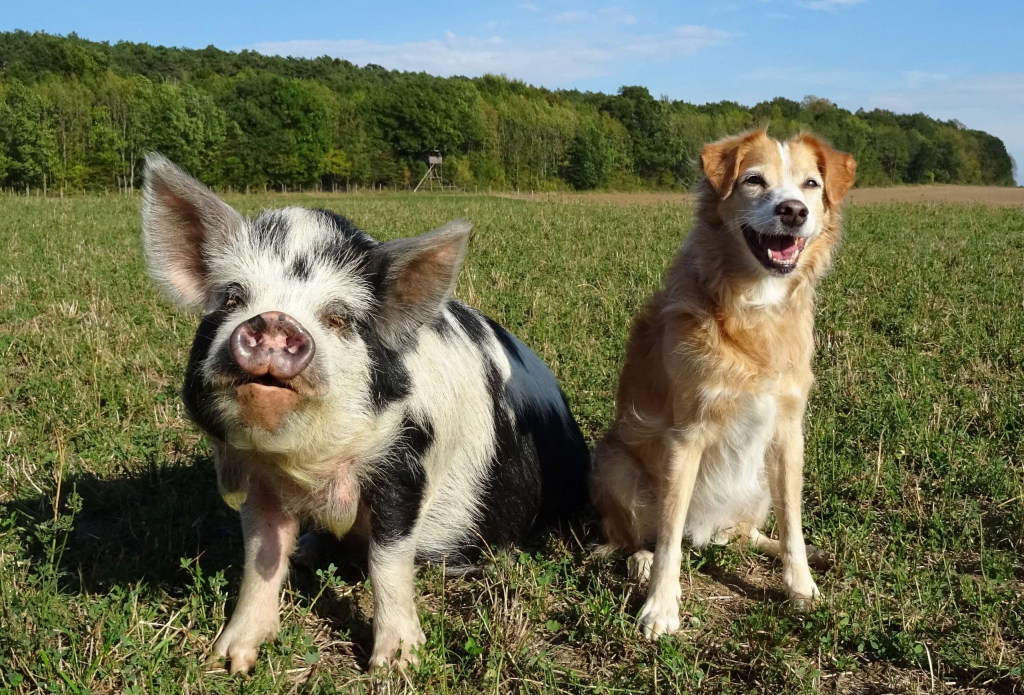The ARED Project
Can animals and infants form and revise beliefs in a rational way like adult humans?
What is the relation between human and animal rationality?
While philosophers often deny that infants and animals may be properly said to be rational on the grounds that they appear to lack the ability to assess their reasons for belief and action, cognitive psychologists and ethologists tend to describe infants and animals as rational agents in roughly the same sense that pertains to human adults.
ARED aims to develop a characterization of epistemic agency and rationality that applies to human adults, infants, non-human animals, and idealized subjects of many philosophical theories. It integrates an original philosophical framework with new empirical research on the cognition of non-linguistic subjects, which will seek evidence of forms of reflective skills in pre-verbal human infants, pigs, and dogs. The project aims to lay the groundwork for the interdisciplinary study of epistemic rationality and to contribute to the shaping a new area of research where epistemology meets developmental psychology and ethology.
ARED’s impact and applications promise to go beyond academic research. The experiments on the cognition of pigs and dogs will deliver information relevant for the assessment of welfare in pig-farming and which may have an impact on new techniques in dog-training. The acquisition of new evidence relevant to the question of how close animal rationality is to human rationality will be important for ongoing debates about animal rights. The developmental studies of infants may provide insights into early childhood education as well as parenting.


Research Overview
ARED has two overarching goals. First, to develop a theory of rational belief-revision that applies to all putative rational agents discussed in philosophy, cognitive psychology, and animal cognition. Second, to develop new empirical tests on the rational abilities of some presumed unreflective agents. The research is articulated in three work-packages, and it starts from the question:
“How do epistemic defeaters (counterevidence) warrant belief-revision?”
Work Package 1: Epistemic Defeaters
The study of epistemic defeaters promises to enhance our understanding of epistemic agency and rationality because defeaters, unlike positive reasons for belief, come in at least two broad varieties. Overriding defeaters suggest that one should believe the negation of a proposition P that one previously accepted; undermining defeaters suggest that one should give up one’s belief in P without thereby moving towards accepting its negation.
Undermining defeaters are especially interesting because they often work by suggesting that something went wrong in the way the belief was originally formed (the evidence was misleading, the method used to form the belief was unreliable, some mistake in processing the evidence was made, etc.). Thus, if one is to change one’s mind (say, suspend judgment on the previously believed proposition P) as a result of processing an undermining defeater, one typically needs to appreciate that the relation of evidential or epistemic support existing between one’s (putative) reasons and belief in the relevant proposition has been called into question. This in turn requires the ability to look at one’s epistemic reasons as reasons—what we might call epistemic higher-order thinking.
Work Package 1 aims to provide a clear distinction between first- and higher-order epistemic thinking, and to articulate the link between undermining defeat and higher-order thinking. Doing so will reveal the centrality of the phenomenon of epistemic defeat for epistemic agency and rationality.
Work Package 2: Epistemic Agency
The overarching point that is expected to emerge from Work Package 1 is that the epistemological tools of the theory of epistemic defeat allow a characterization of rational agency in terms of the types of defeaters agents can process, thereby providing a common framework for philosophy and the empirical sciences involved in the project.
Building on the work done in Work Package 1, Work Package 2 is expected to articulate a Two-Stage theory of epistemic agency. ARED’s working hypothesis is that subjects who have the ability to process basic positive reasons and ordinary overriding defeaters exhibit what we might call ‘minimal epistemic agency’: the ability to revise beliefs and maintain a coherent belief-system informed only by first-order epistemic thinking. Over time, unreflective subjects capable of minimal epistemic agency develop the capacity to process undermining defeaters and, in doing so, learn to reflect on the strength and significance of their reasons for belief and begin their ascent towards reflective agency and ‘full-fledged epistemic rationality’.
The suggestion that learning to process undermining defeaters is a key element in the transition from unreflective to reflective epistemic agency may encourage the view that the two stages of agency stand along a continuum and differ in degree rather than kind. The merits of such view, and its bearing on the relation between human and non-human rationality, will be assessed.
Work Package 3: Human and Animal Rationality
Work Package 3 is the largest work package and explores the link between the rational belief revision of adult humans and non-linguistic agents, by designing and running new experiments aimed at testing the ability to process undermining defeaters. The empirical research will involve human children, pigs and dogs. The studies on preverbal children will be carried out at the Department of Psychology of the University of Stirling; those on pigs and dogs takes place at the Messerli Research Institute, University of Veterinary Medicine in Vienna.
All the work packages will be interdisciplinary. On the one hand, the philosophical theory of epistemic defeaters will guide the design of the experiments of Work Package 3; on the other hand, the philosophical goals of Work Package 1 and Work Package 2 will be informed by current scientific literature that assigns rational agency to non-human animals and human infants.




